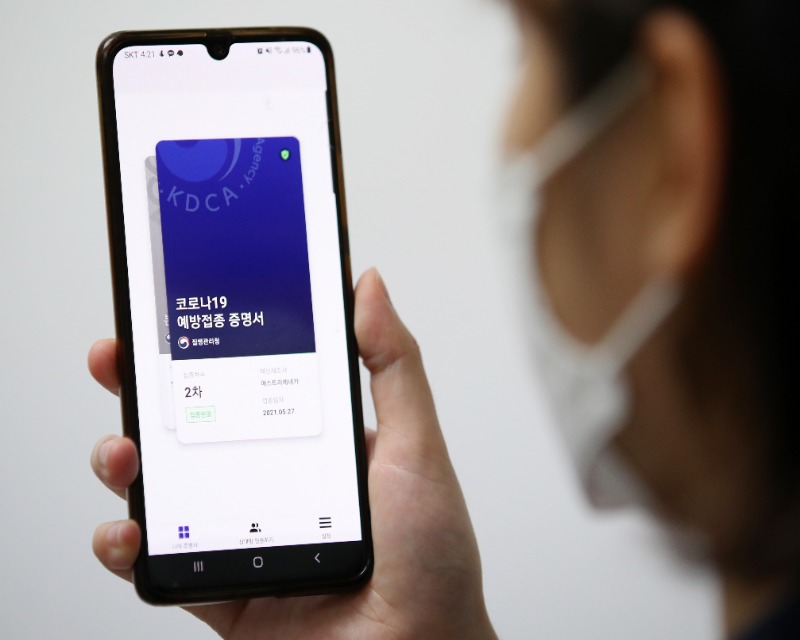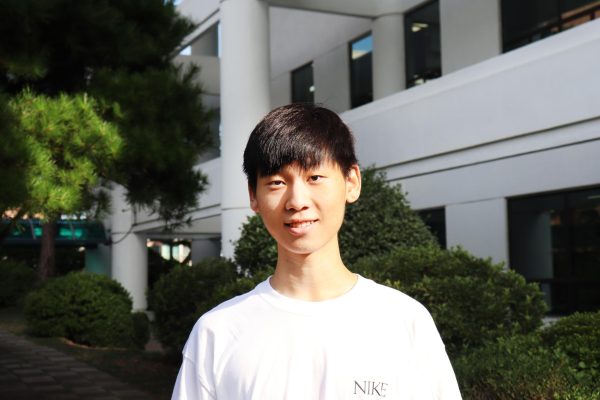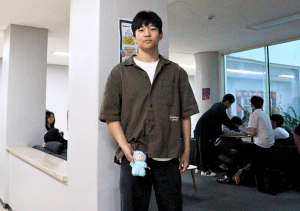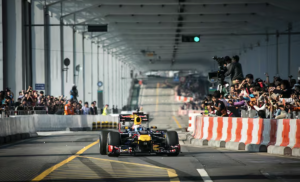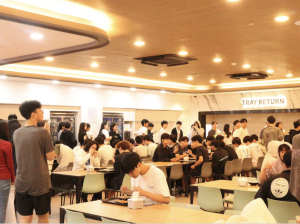Judicial branch terminates vaccine pass regulations
Jan 27, 2022
On Jan. 4, the Korean administrative court, accepting the proposal by civil groups to abolish the vaccine pass regulation, declared the temporary 30-day suspension of the regulation at study cafes and academies in Seoul.
The Korean government implemented “vaccine passes,” a personal vaccine profile from an app that displays information about the shots one has received, on Dec. 13, 2021. To use public facilities including theaters, museums, and restaurants, adding on to the previously required QR check in, the regulation made it mandatory to show that one has been fully vaccinated within the past six months.
The government immediately appealed after its court loss. Government officials were concerned that this new update may put the past efforts of controlling the virus spread in vain, as more social gatherings may likely occur between unvaccinated individuals.
Vaccine mandate supporters concurred with the government’s stance, asserting that these laws have helped establish a stronger herd immunity by giving clear disadvantages to the unvaccinated. As more people get vaccinated, the likelihood of COVID spreading becomes more unlikely, thus granting safety of the whole community.
Although the vaccine pass regulation may have successfully prevented the spread of COVID-19 to some extent, opponents submit that it had major drawbacks stemming from its excessive restrictions.
Due to the tight regulations, vaccination has become a necessary component for leading normal lives amidst the pandemic. Some citizens have maintained that these regulations violate their freedom of choice, claiming that the laws “force” citizens to receive vaccines by placing unvaccinated people at an immense disadvantage.
“I cannot even spend my leisure time properly due to the COVID policies: for instance, my friends and I can no longer enter restaurants or theaters if one of us is unvaccinated,” Jihoon Kim (11), “living with COVID-19” movement supporter, said. “As the pandemic expects to continue, we have no choice but to live a normal life along with COVID-19. The government should loosen up restrictions and focus on granting citizens convenience amid the pandemic.”
A bigger problem of the regulation appeared in education: many students experienced inconvenience in accessing previously attainable academic courses.
“I experienced great inconvenience during the time I did not have my vaccine pass set up,” Eddie Chu (10), previously unvaccinated student, said. “For one thing, I was prohibited from going to my AP US History academy, which hindered my understanding of the current unit. Though I took online courses and watched YouTube videos, I could not obtain the same quality learning I did from offline classes.”
Many parents were bothered by this fact that their unvaccinated children would have less opportunities for quality education. Students allocate most of their time studying at academies and study cafes, but the vaccine pass regulation has restrained the unvaccinated students from their typical routines.
“While I can understand limiting social gatherings in restaurants or theaters, education is an important matter that should not face restrictions,” Lee Chan-Jean, parent of SIS student, said.
“In Korea especially, enrolling in a prestigious university is crucial in that it leads to a satisfactory career and high income. Yet the vaccine pass regulation has created unfairness in college admissions, by differentiating the educational environment for the vaccinated and unvaccinated. I am relieved that the judicial branch has finally put the brakes on the harmful vaccine pass regulation.”
Yet not everybody is pleased with the judicial branch’s decision. Supporters of the vaccine pass have criticized the administrative court for valuing individual freedom over public health.
“Especially as recent news claims that vaccines reduce illness when infected with Omicron, vaccination remains crucial, but vaccination has to happen as a whole group for its effectiveness to maximize,” Alexander Weir, COVID vaccine mandate supporter, said. “I cannot comprehend why the judicial branch nullified the previously effective regulations merely for the sake of respecting individual rights, when public health is of paramount importance.”
While a heated debate as to whether the suspension of the regulation is beneficial continues between citizens, the two branches also continue their legal fight. As for now, the return of the vaccine pass policy remains uncertain.

